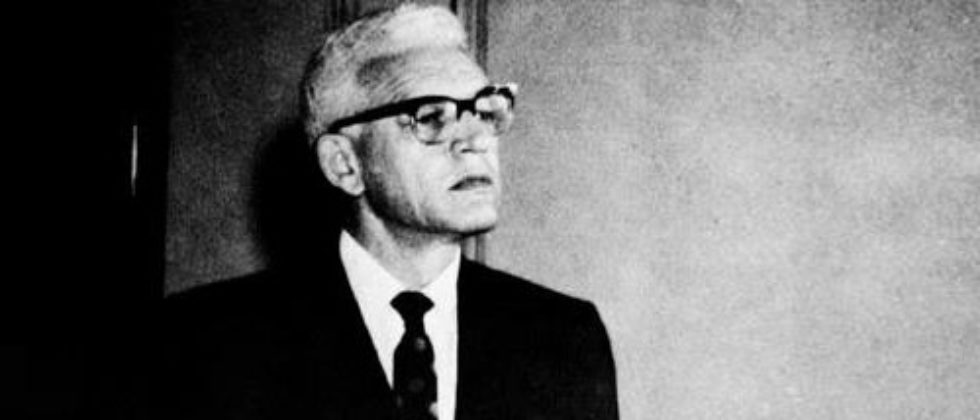news
“Bosch and Lilís”, an article by Dr. Leonel Fernández
March 30, 2019
One of the most original stories told by Juan Bosch about Dominican history was his interpretation of Ulises “Lilís” Heureaux’s role in influencing the fate of the country.
As a result of the sugar industry’s rise beginning in the 1870s – due to the Cuban migration to Puerto Plata – Lilís represented an effort to create a capitalist and bourgeois society, although he did not take into consideration the liberal ideas of that type of economic and political system.
To tell the truth, Ulises Heureaux was a unique personality in Dominican history. Born a year after the declaration of independence in 1845, he was the child of a woman coming from the Virgin Islands and a Haitian father. Despite his humble beginnings, he rose quickly through the military ranks.
He participated in the Dominican Restoration War in which he demonstrated bravery and leadership. He first followed orders under General Gaspar Polanco and later under General Gregorio Luperón.
After reconquering national sovereignty, General Ulises Heureaux fought alongside General Luperón in many battles against the governments of Buenaventura Báez and of other leaders from the Red Party and the Green Party.
He was injured on many occasions. He was wounded badly and lost movement in his right arm.
Despite all of that, he was the military leader in fights against Cesáreo Guillermo and Ignacio María González until 1879 when the Blue Party rose to power to establish a political hegemony that would last for 20 years.
The provisional government of General Gregorio Luperón in 1879, which only lasted a year, was followed by three successive governments.
Those governments were led by Fernando Arturo de Meriño from 1880 to 1882; Ulises Heureaux from 1882 to 1884; and by Francisco Gregorio Billini and Alejandro Woss y Gil until 1886. The first signs that Lilís had turned into a master of political manipulation were observed at the end of his first stint in government when he caused a dispute among the ranks of the Blue Party about who should be his successor.
Lilís committed fraud of 15,000 votes in favor of the candidates Francisco Gregorio Billini and Alejandro Woss y Gil, who in reality had been defeated by Segundo Imbert and Casimiro de Moya, backed by Luperón.
Disdain for democracy
With that action Lilís initiated a new era in politics, consolidating his power. It was characterized by cheating, concealment and duplicity, and eventually resulted in the first dictatorship in the Dominican Republic.
The imposition of Billini as the president of the Dominican Republic by Lilís, divided the Blue Party forever. Lilís also procured the support of the old party members of Buenaventura Báez, who were unprotected with the death of their leader.
At the same time those leaders let Lilís know that he could break off his old ties with General Gregorio Luperón and align himself with all the Blue Party leadership.
And so it was. General Luperón, who had lost power among the ranks of the Blue Party for denying the presidential candidacy many times, had to leave the country in exile.
The liberal wing of the Blue Party never accepted the fraudulent maneuver to get Billini into power. In the end, the pressure obligated him to denounce the position and hand it over power to the vice-president Alejandro Woss y Gil.
But this was unacceptable for Lilís. That’s why it was understood that the real power behind the thrown in the age Woss y Gil was actually Lilís.
All of the aforementioned events weakened the internal unity of the Blue Party. The Red Party had succeeded in dividing it, turning Heureaux into a figure in opposition to the traditional principles of the Blue Party.
In the 1886 election in which Lilís was once more a presidential candidate, he committed fraud again, usurping the winner, in this instance his former vice-president, Casimiro de Moya.
This is how the dictatorship of Ulises Heureaux formally began and would last for 13 years when the streets of Moca were stained with his blood.
Bosch’s thesis
In his classic text, Social Composition of the Dominican Republic, professor Juan Bosch does an analysis on the political personality of Lilís in the context of his era.
To the famous writer and politician, the economic and social advancement of the Dominican Republic in the last three decades of the 19th century were a result of, as stated previously, the Cuban migration and the development of the sugar and cattle industries.
Still, from the political perspective, the stability achieved by the country following so many rivalries and conflicts between different caudillos was thanks to Ulises Heureaux, who became known as the “Peacemaker”.
From the social point of view, the Blue Party leaders, according to Bosch, faced a contradiction. The party was made up of people in the high and middle petite bourgeoisie that aspired to make the Dominican Republic a country with capitalist and bourgeoise development.
But there were not conditions in that era to develop a bourgeoise society. The great majority of the Dominican population was made up of people coming from the lower petite bourgeoisie, who were poor and very poor people. It was missing everything. It didn’t have regular militaries; organized public administration; national statistics; nor infrastructure to indicate a sense of progress.
It also was missing political shape of the bourgeoise state. There was no respect for the established norms and the fundamentals of a democratic state of law were ignored.
Ulises Heureaux shared with the other leaders of the Blue Party the aspiration to turn the Dominican Republic into a bourgeoise state. But he disagreed with his counterparts in the Blue Party about some of the aforementioned aspects.
According to Bosch, “the difference between Lilís and his colleagues from the Blue Party had to do with the acceptance of a single word. The other party members wanted Santo Domingo to be a liberal bourgeoise state; Lilís hoped for it to be a bourgeoise state without making it liberal”.
When referring to constitution of that time, the founder and historic leader of the Dominican Liberation Party (PLD, for its initials in Spanish) stated:
“The political constitution changed with each government and often times during a government it was normal that, even with those changes, the constitution was violated.”
It was obvious that is what took place during the era of Lilís.






